Nicholas Templeman bespoke shoes: Introduction and fitting
Nicholas Templeman is a bespoke shoemaker, an ex-John Lobb lastmaker who now works out of his home in North London.
We've been working on a pair of derby shoes for the past year, and they're near completion. So I thought it would be good time to write a little about Nicholas, his background and his style - and include some photographs of our first fitting last year.
Although Nicholas was at Lobb for seven years, and it's an important point in establishing his credentials, it feels like it's becoming less and less relevant, given he has been on his own for almost as long - since 2014.
“It did take me a while to get out of some of the habits,” he says. “For about a year I was still calling people ‘Sir’, which everyone has to at Lobb. It would be a case of ‘Please call me Steve’ and I’d reply ‘Of course Sir’.”
He still finds himself occasionally using Lobb names for shoe styles - such as a ‘navvy cut’ for a derby, which refers to the fact that the shoe was worn by the navigational engineers (basically, a worker’s shoe).
Although Nicholas has shaken some of this terminology, he still considers himself grounded in West End traditions. That’s the way he was trained, and the make he still employs: a solid, classic English shoe.
However, his style and design is more international. In fact, when he left Lobb he “went a bit mad” he says: “I’d been making one way for seven years, and all of a sudden I could do anything. I became obsessed by other makers, by Anthony Delos and Dimitri Gomez in France and by the Japanese.”
“I remember when I went to the US for the first time. I’d taken some good orders and made all these lasts with really smart, elongated toe shapes. I thought I was going to knock it out of the park.
“But when I went back to the US to fit them, some customers said it wasn’t what they wanted. They were used to American shoes, to comfortable round-toed styles and penny loafers.”
Nicholas has become better at tailoring his style to different clients since then. In fact, I would say the communication was one of the things I enjoyed most about commissioning from him. We discussed tanneries, international styles and little points of technique, all of which led to a feeling that I was deeply involved in the process.
Examples of some of his work below, all taken from his website here.
Nicholas studied fine art before deciding he wanted to be a shoemaker, and he thinks this gives him a slightly more aesthetic appreciation than makers who are primarily craftsmen.
“In some ways it was a great combination of both - the artistic and the technical,” he says. “I specialised in print making, which is creative but also involves a lot of the repetition and refinement you get in shoemaking.”.
His decision to go on his own was driven by a desire to create his own identity - but also to control every aspect of the process.
“It could be rather frustrating at Lobb: you had little interaction with the customers, yet they would still be upset at you if something went wrong,” he says.
“In fact when I first started working there, we had to go to the office and explain what email we wanted sent to the customer. Then replies were printed and handed to us later.”
Nicholas still uses outworkers for the closing and making, which is standard in the UK. But he controls all the measuring, the fitting and the lastmaking, as well as the pattern work and final finishing.
And most importantly, there is the direct relationship with the customer. “In some ways it feels a lot more modern than going to a shop, and dealing with an organisation,” he says. “I want to understand the customer and make something that fits their lifestyle. I’m only 37 - a millennial - and I’m not going to make them an old man’s shoe unless that’s what they really want.”
Nicholas has a workshop on the top floor in his house, and receives a lot of customers there - as well as visiting others in their offices or homes.
I visited for our first appointment, and it’s a lovely little space, with views down over the garden. There’s also something pleasant about being picked up at the station, having coffee in the kitchen, and then chatting about shoes for a good hour or so.
Nicholas and I have a bit in common too, being similar ages, with young families and an interest in cycling - so that ate up another hour.
In fact, while I know some readers would enjoy the full retail experience, this personal relationship is the kind I’d like to have with my tailor or shoemaker - particularly as I get older.
“I don’t ever really want to have my own shop,” Nicholas says. “For one thing, I’d have to make twice as many shoes as I do now just to cover the rent. Perhaps a showroom at some point, shared with others. But that’s about it.”
The shoe we commissioned was a derby in an old grained calfskin that Nicholas had from French tannery Annonay.
Pictured is our first fitting, with the upper wrapped in plastic to protect it. Nicholas normally does one fitting ‘in welt’ like this, and then another with the finished shoe.
“I do as many as is needed though, and as many as the customer is comfortable with,” he says. “If we need more, and it’s convenient for them, then that’s fine.”
The whole process normally takes about eight months, for a first shoe, but if a fitting isn’t required for the second one, then more like 3-4 months.
Happily the fit on my pair was very good, with a snug hold around the heel and sufficient room around the joints and toes. It boded well.
One more fitting might be needed, but on a completed shoe and just to check there isn’t anything small left to tweak.
That might be a question of adding leather to the last and getting it back in the shoe, for example. Or it might require the sole to be taken off again - Nicholas made it clear he is always happy to do that if required.
We conducted the fitting in our PS Presents pop-up shop, with a little bit of an audience. That’s hatmaker Cody Wellema - always interested in seeing other craftsmen at work - peering over Nicholas’s shoulder.
Review of the completed shoes in a few weeks.
Bespoke calf-leather shoes, with hollow and hinged trees, start at £2950 plus VAT. Ankle boots are from £3450, and alligator from £5300.
Nicholas isn’t currently travelling due to the Coronavirus, but normally visits the US twice a year: New York, Washington DC, San Francisco and (for the first time on the next visit) Dallas. He also travels to Japan and Hong Kong.
Photography: Milad Abedi


















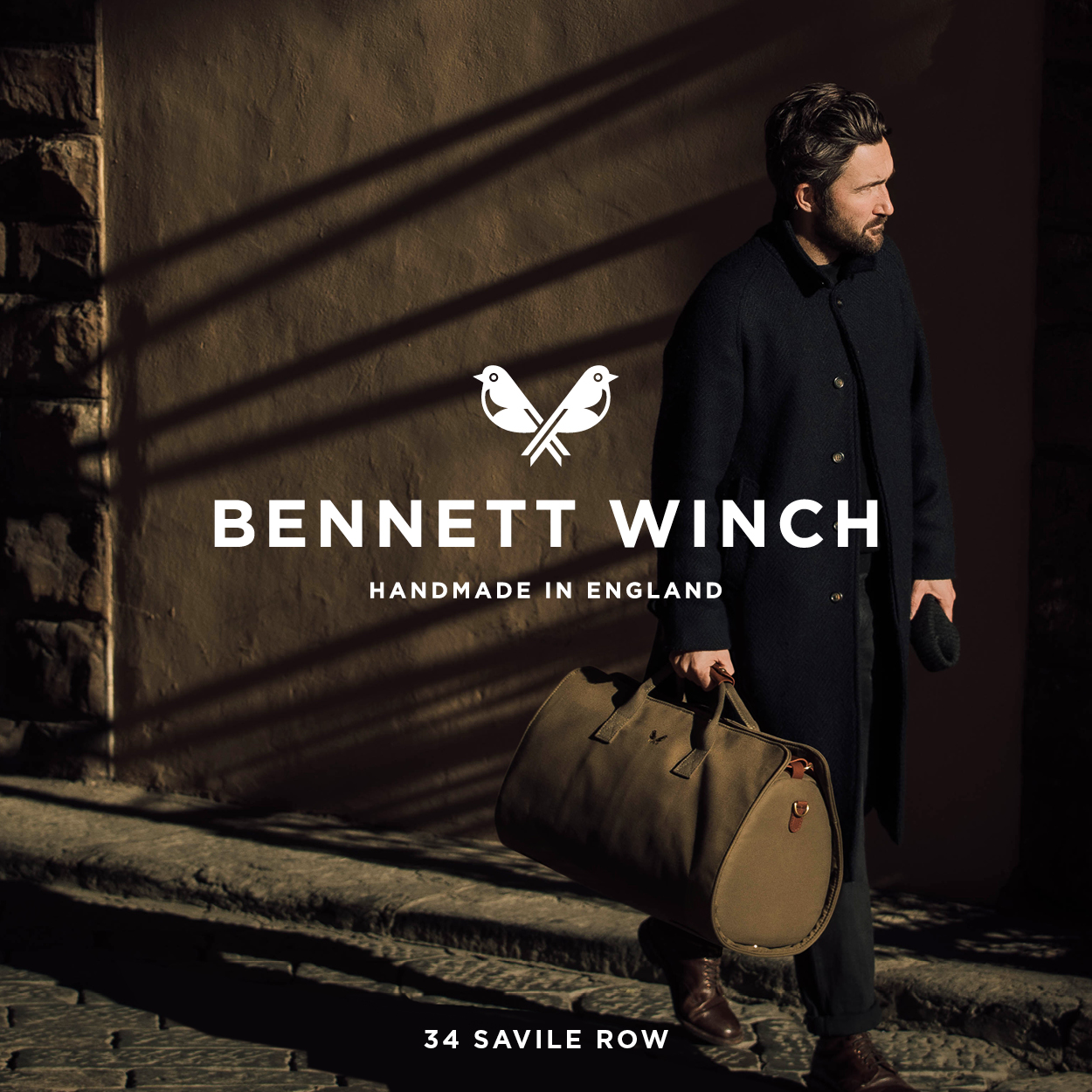




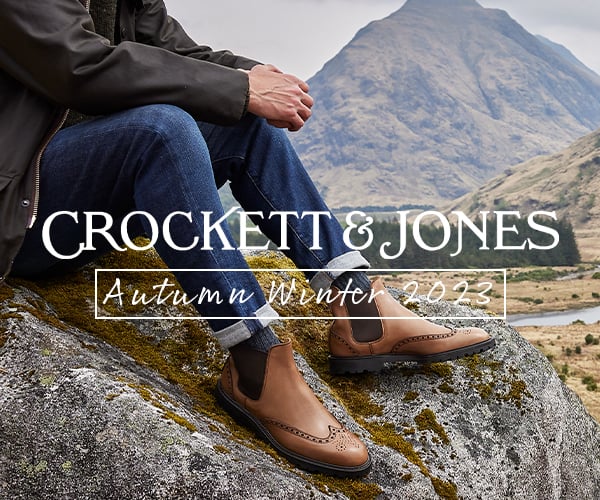
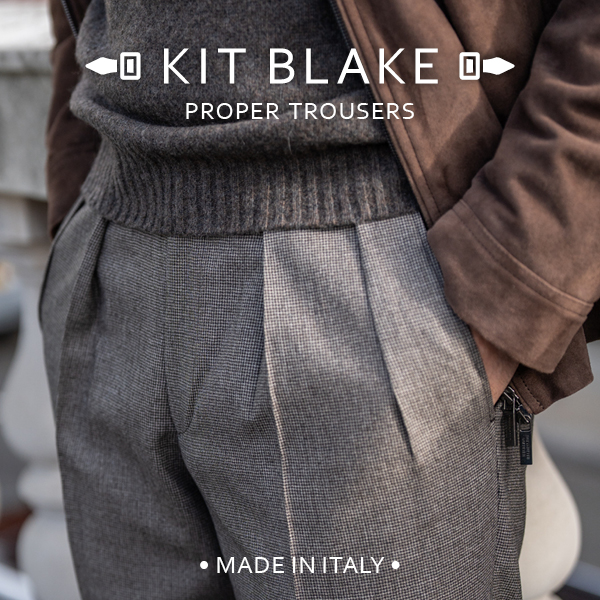



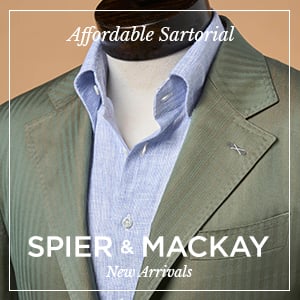
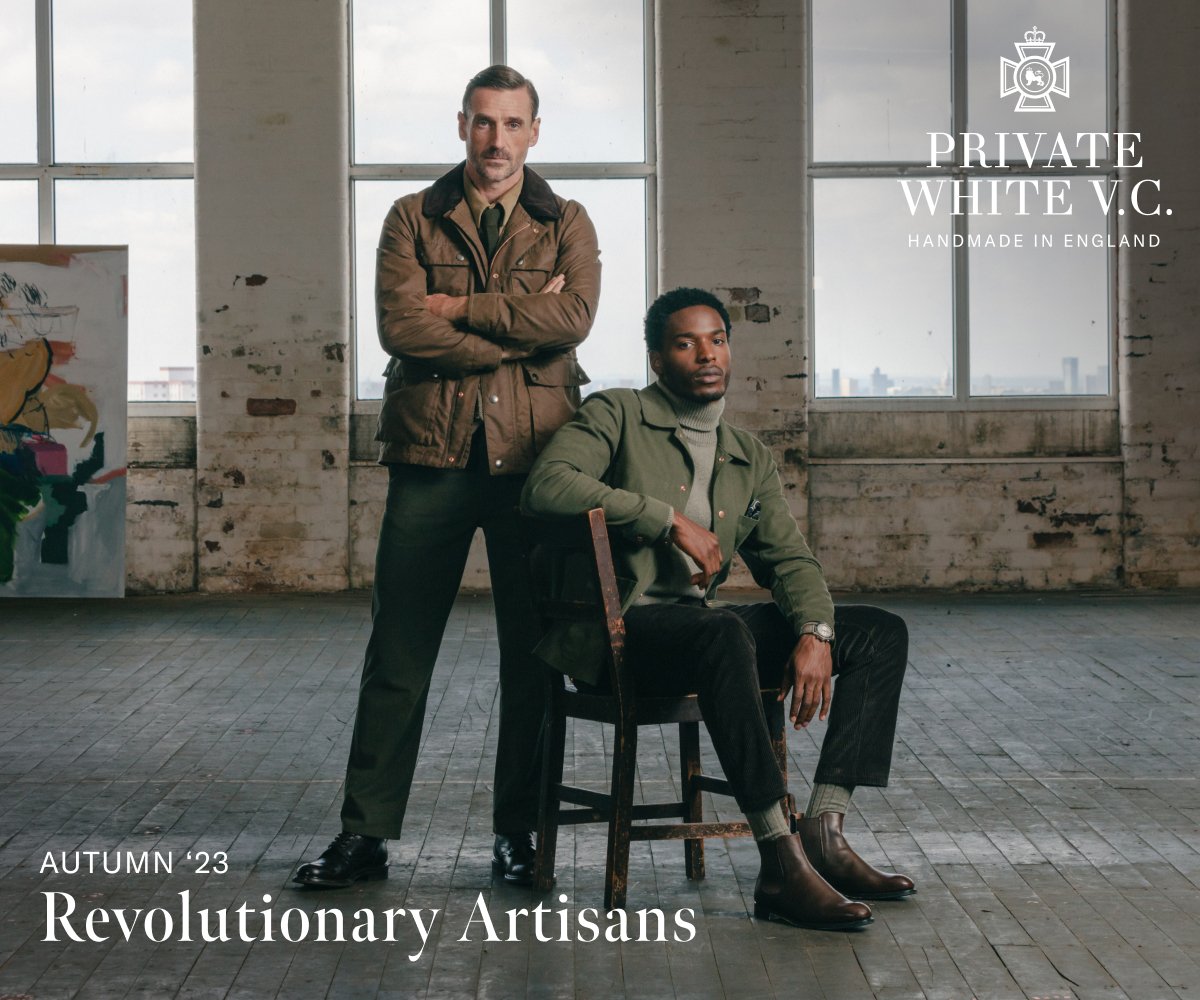
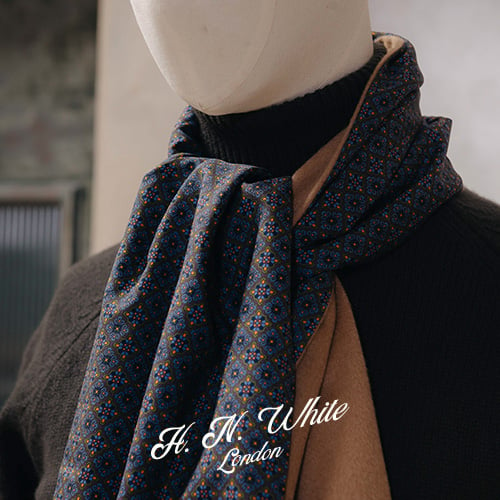




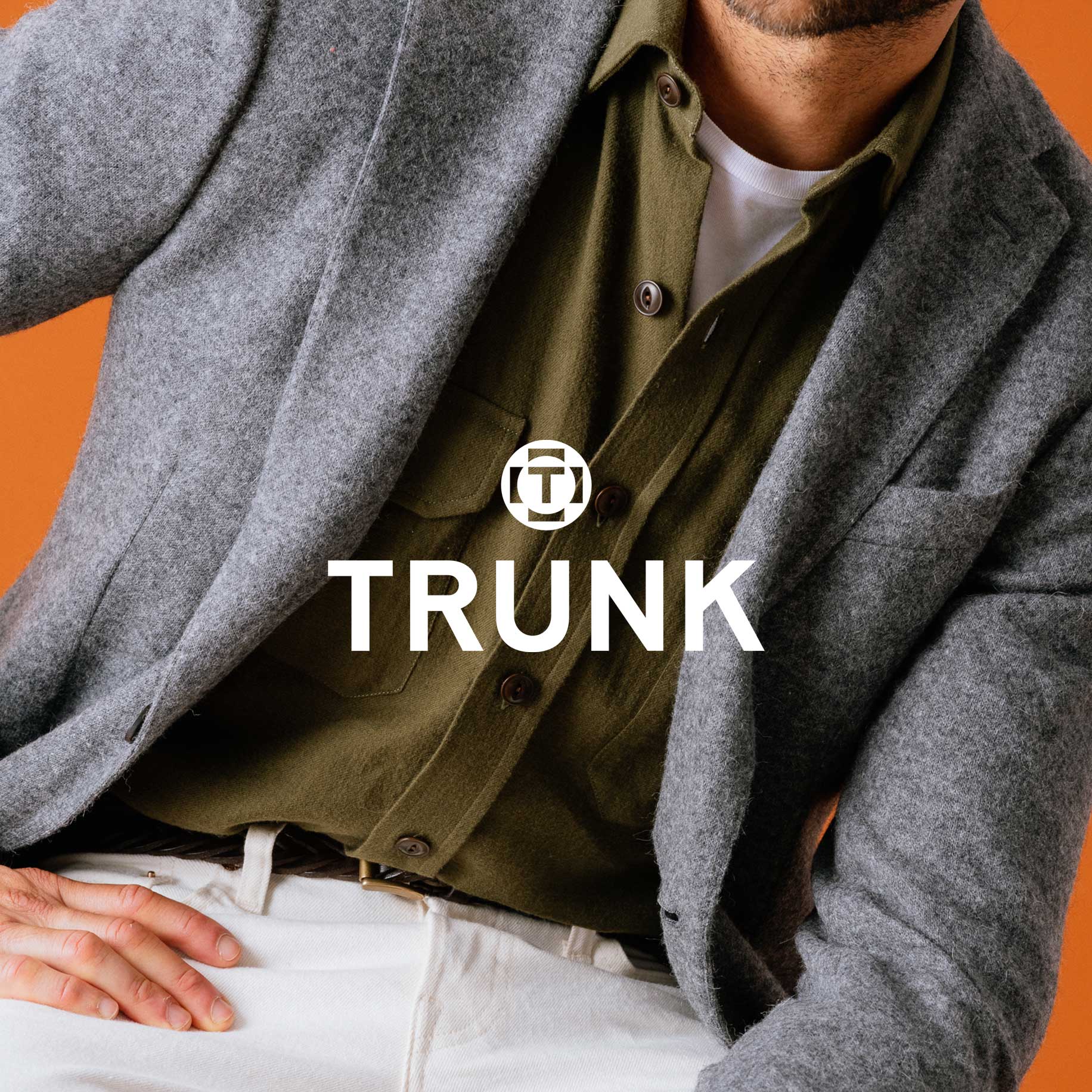
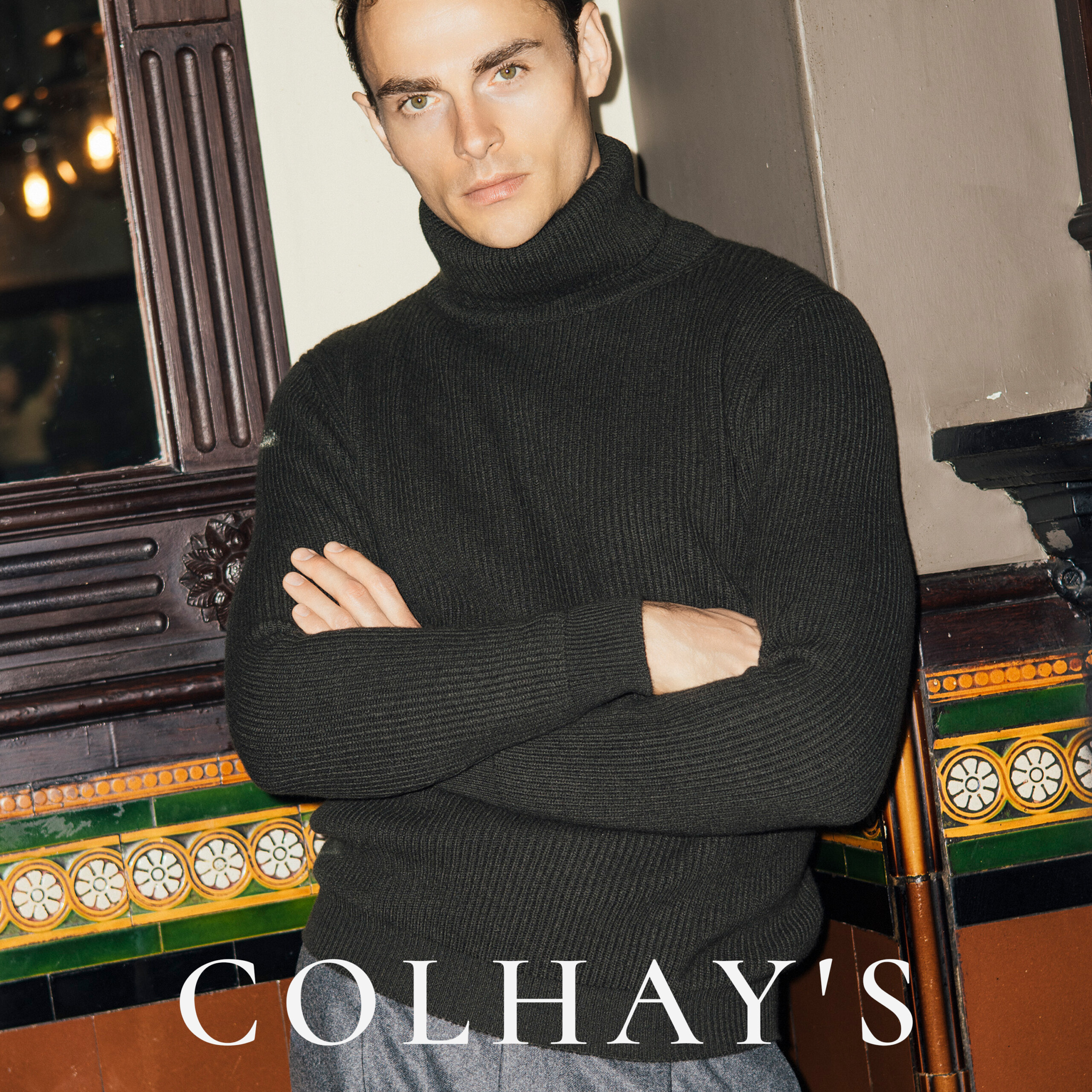



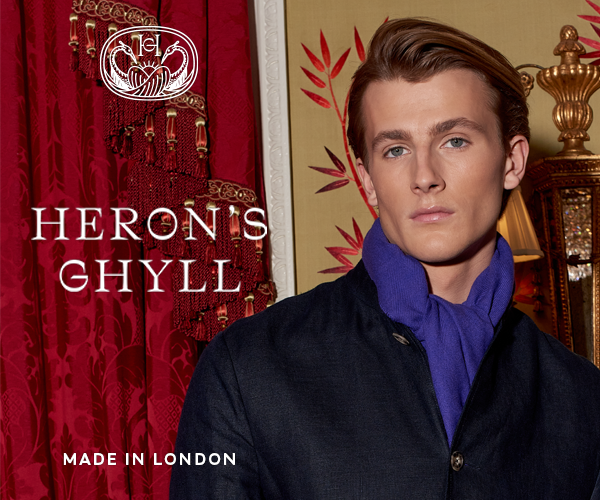

Slightly off topic Simon but when you visit ateliers in the UK and around the globe which are the places you visit that make you think to yourself “wow,the men and women here dress well”.
To be honest, pretty much nowhere.
You do see a few more well-dressed business men in Milan, some gents wearing colour really well in Naples, and a certain old-money guy in uptown Manhattan in a very good suit. But they are all the extreme minority.
Thanks for the reply Simon but don’t you even come across anybody anywhere in a pair of nice chinos,jeans,shirt jacket etc ?Or women in stylish dresses or trousers ?
Yes, absolutely. Just not in large enough, consistent enough numbers to attribute to one place or culture.
It also probably doesn’t help, today, that most places I travel to are realistically quite international, with less of a coherent local culture as a result.
I wonder about the reason. Careless? if that is the matter it worrying. Psycological would not dare to wear nice clothes? It is worrying as well.
I think you are on a mission with your blog Mr. Crompton!
And it would perhaps be good to enlighten the issue “why we dress bad” in an article.
Where does Jermyn Street / St James rank? If you stand outside Whites for a few hours you would be happy!
I’m not sure I would be to be honest, I’m in that area a lot and it’s pretty dominated by tourists these days.
The people in Madrid are quite dapper.
Good point. I’d say in Madrid I noticed a larger number of classically dressed men than almost anywhere – including London
I’m here now. Probably one of the best dressed cities I’ve visited.
Portofino, Capri, Villefranche, Taormina; great flor summer colour casual.
I thought that in Stockholm people were quite well dressed. Kind of relaxed modern tailoring.
Though it might also help that many Swedes are just naturally good looking, at least that’s what I thought when being there.
I would support Madrid though. In comparison, Italian style seems loud and nearly vulgar – indeed I think the Spanish are much more restrained, maybe its the catholicism.
Italians are Catholic too though Felix? Or at least the culture, and in the main
Yes, surely – though somehow my association with Spanish catholicism is more that of Philipp II (or more currently Opus Dei), whereas in Italy I think of flamboyant Borghese popes in all pomp and circumstances. This is of course just a prejudice.
“….many Swedes are just naturally good looking,…”
I also believe that being healthy/in good shape works immeasurably in your favour for how clothes look.
Clothes are designed with a “look” in mind, and that usually means someone who is trim and confident in body. I remember some womens’ clothing designer being publicly vilified because his clothes were not available beyond a narrow size range…
His comment was: “..my clothes are not designed for/don’t look good on fat people…” or something to that effect….
In Vienna, I think. Well-dressed men are almost the norm, that tourists stick out in the crowd. Going out to a restaurant there, the lounge bar was packed with younger men in suits and the restaurant inside with older gentlemen in suits and ties. On rainy and snowy days people were hats. Not to mention the black ties outside the opera house.
A sign of the times, unfortunately. When I first went to Italy thirty years ago one would see beautifully dressed men and women everywhere. I was in Bologna a couple of years ago and saw only a handful of well-dressed people in four days.
I would concur completely with Simon.
The populous at large have absolutely no idea. It’s a complete bordel everywhere.
My wife and I had our ‘unlock’ lunch at ‘The Ivy’ last Sunday and were confronted by a fat guy at the next table sporting a pair of shorts that exposed his builders crack.
What’s worse, women are starting to dress as badly as the men.
It’s difficult not to think that the noble art of flaneuring is doomed but I’m determined to go down fighting and more importantly, so is my wife.
Nice shoes by the way but way too expensive !
‘Flaneuring’ does not mean dressing well. ‘Flaneur’ does not mean someone who dresses well. I am sure you will keep on using this word as you have been, nonetheless, though, and–I must admit–I kind of appreciate it at this point.
Nicholas is the man. I particularly love his designs
A good read, thanks Simon – I’ve been interested in Nicholas for a while. I think he would be my first choice for a bespoke maker once funds allow it.
That view into Lobb’s way of working, with printed emails, is sort of tragicomic. It definitely feels reflected in the number of stories from disaffected customers that pop up on Styleforum. You can see how constricting that must feel to work there.
Technical question, Simon. I thought a split-toe would have a seam front centre between the vamp and welt?
You’re right Kevin, that was an error, not sure why I put that. I’ve corrected it now. Thanks
Is there any reason why you opted for a regular derby instead of a split-toe one?
Two reasons – one, I have a few split-toes already (EG Dover, Vass, Alden), but nothing in this style; and two, I just liked an existing design of Nicholas’s. As mentioned, I frequently pick things based on existing designs I can see – in both shoes and tailoring. You just get tired of getting small things wrong after a while
This is a repeated comment, but I think you may consider Simon how perhaps in some cases you may receive better service than others?
I’ve initiated messages to Nicholas on several occasions without response; it gives the impression that he chooses clients, which he admits on Kirby Allison’s featured interview. So it’s odd reading that Nicholas cited little interaction w/ clients at Lobb while he himself doesn’t respond to potential client emails. A response (even a “no”) would be nice.
Thank you, and that’s a good point.
I do usually speak to others for pieces, to corroborate impressions, and here I know several others that are clients of Nicholas’s and I’m sure receive no favourable treatment, other from simply being good customers.
Thanks Simon, that’s good to know.
My messages were open and introductory — which would kindly warrant response? This is just based on my experience and intended to respectfully give feedback.
Yes, you would have thought so. I’m afraid I can’t speak for whether Nicholas saw the message or if he did, why he didn’t reply
Hello, I’ve never knowingly ignored any attempts at communication – social media messages get filtered and I forget to check the relevant folder regularly, and as I tend to be at my benches I do suffer a backlog of email correspondence from time to time but generally get there in the end. I am sorry to learn that your messages didn’t make it through, though I’m at a loss as to how this has happened
ps: I also don’t as rule get to choose who my clients are, occasionally you have to accept that a particular request isn’t going to be satisfactory to either party but I would consider it more professional to admit this before leading anyone too far down the path. There’s no select club of clients or anything like that
I can’t speak for your experience, however I have two pairs of shoes from Nicholas, and I started off by simply sending him a simple inquiry email to which he replied promptly. This was in 2017 and he may be busier these days, but I would try and contact him again. Always possible that he missed the email or that it was picked up by an email Spam filter.
My experience with replies from Nicholas was also excellent. I sent a simple enquiry a year or two ago. Nicolas responded promptly with a warm and very comprehensive, thoughtful reply. I was very impressed. Hope to follow up when travel becomes easier.
I can only speak for myself in that I’ve always found Nicholas to be as polite and responsive as can be, even if the work itself sometimes prevents him from responding to a given inquiry immediately.
I have the impression that bespoke shoemakers stray further from conventional/RTW aesthetics than bespoke tailors do, would you say that’s correct? Most bespoke shoes I see online are very eccentric to my eye; pointy, angular, very narrow waist, etc. It happens to not be my taste, but one might even say they defeat the purpose of a classical shoe, in that they attract a disproportionate amount of attention by being so usual, in a way that bespoke tailoring usually does not. Do I have a point, or am I mostly rationalizing my taste?
No I think you have a point Sam. Although I do think tailoring can be more extreme in terms of its cloth and patterns, and classic bespoke shoes have less to play with there, so perhaps there is more fiddling with waists, heels and toe shapes as a result.
Though it’s probably also the case that makers tend to show images of their most distinctive creations, when they also make a good number of very classic oxfords. Albeit with a rather slim waist and shaped heel, which are both pretty subtle things given they’re on the bottom of your feet.
Sounds and looks very promising indeed. Skills and style. Will certainly keep Mr Templeman in mind for when I am mentally and financially ready to move forward with a new pair of ‘bespokes’. Looking forward to the review if the final. In the meantime, Mr Templeman, if you happen to read this, can you get someone to make your (otherwise very nice) website more mobile friendly? Difficult to read and navigate on the phone (which is where all the non-work related browsing happens in my case).
Hello, thanks for the awfully kind words and I’ll see if I can figure the website out – I knocked it together myself with a copy of “HTML for Dummies” and a large martini so it’s not the most feature laden
Nicholas makes absolutely stunning shoes. So nice to see he’s taken what he’s learnt at Lobb and made it his own.
I have two pairs of shoes from Nicholas and both are excellent. My first pair looks very similar to yours, Simon, a non-split toe Norwegian in a grained calf from Annonay. My second is a dark brown non-cap toe oxford. Both shoes fit like a glove–a close touch all around my foot, but with no rubbing or hot spots. Bespoke shoes are a revelation.
Nicholas is easy to work with and I’ve met him in San Francisco and at his previous home in London. It’s always good to spend an hour of so with him. He also has great taste in watches! I hope you are as happy with your shoes as I am with mine.
When a pair of your bespoke shoes needs a repair such as new heels or soles do you have the original maker complete the repairs ? Are their prices reasonable ?
Yes I always would. And yes, given the level of work you’re getting, they’re reasonable
Madrid really has the most stylish street views I can think of too. I think perhaps the cafés make it. Its like they are all newly renovated.
Very nicely balanced lasts to my eye.
Silly question but how do theses small scale shoemakers get the leather? Do the buy the hide for a single pair of shoes? Then you can feel the material beforehand as customer?
Francis Waplinger out of NY is a great bespoke shoemaker. Had the pleasure of meeting him recently, he studied in Florence under a couple of greats. It’s evident in his craftsmanship.
He’d be worth an interview for sure if you’re doing another article on the topic!
Thanks Nick, I will
His prices make me realise how much Gaziano and Girling have increased their prices recently – £4500 plus VAT for shoes. I guess that’s what rents/rates on Savile Row do for you.
Very nice read, thank you Simon. And, those shoes are quite nice!
Came for the shoes, stayed for the flâneurs.
Nicholas has made two pairs for me; hatch grain slip-ons and ox-blood single monks. They are the finest shoes I own. He takes a collaborative approach that I very much appreciate. And he is the kind of artisan that truly wants his clients to be as thrilled with his shoes as he is. I am glad to see you reviewing his work Simon – Nicholas is great guy and I would love to see him have as wide an audience as possible.
Simon, so glad to see you (finally) getting a pair from Nicholas and writing about it.
Nicholas, Steven Hitchcock, and Charlie Trevor – I think among those three gentlemen, you’d be covered for just about anything!
Simon, you should feature Nicholas on the next PS pop-up, whenever that is possible to put together.
Thanks Nicolas. We wouldn’t normally, given it’s bespoke and UK and he wouldn’t have much to show. You mean you’d like to meet him outside of a normal appointment basis?
Beautiful shoes. But how do you polish a pair like that without discolouring the light stitching? Rob
A tan polish won’t really change the colour at all, but if you are worried you can use an uncoloured one as well.
Hi Simon,
How are the shoes you got made settling in?
In terms of fit and comfort, would you say that the shoes you commissioned are good value for money for bespoke?
They’re doing very well, certainly comfortable and well made. We had a small issue lining up the facings, but it is small. We’re just correcting that and then there will be a full piece.